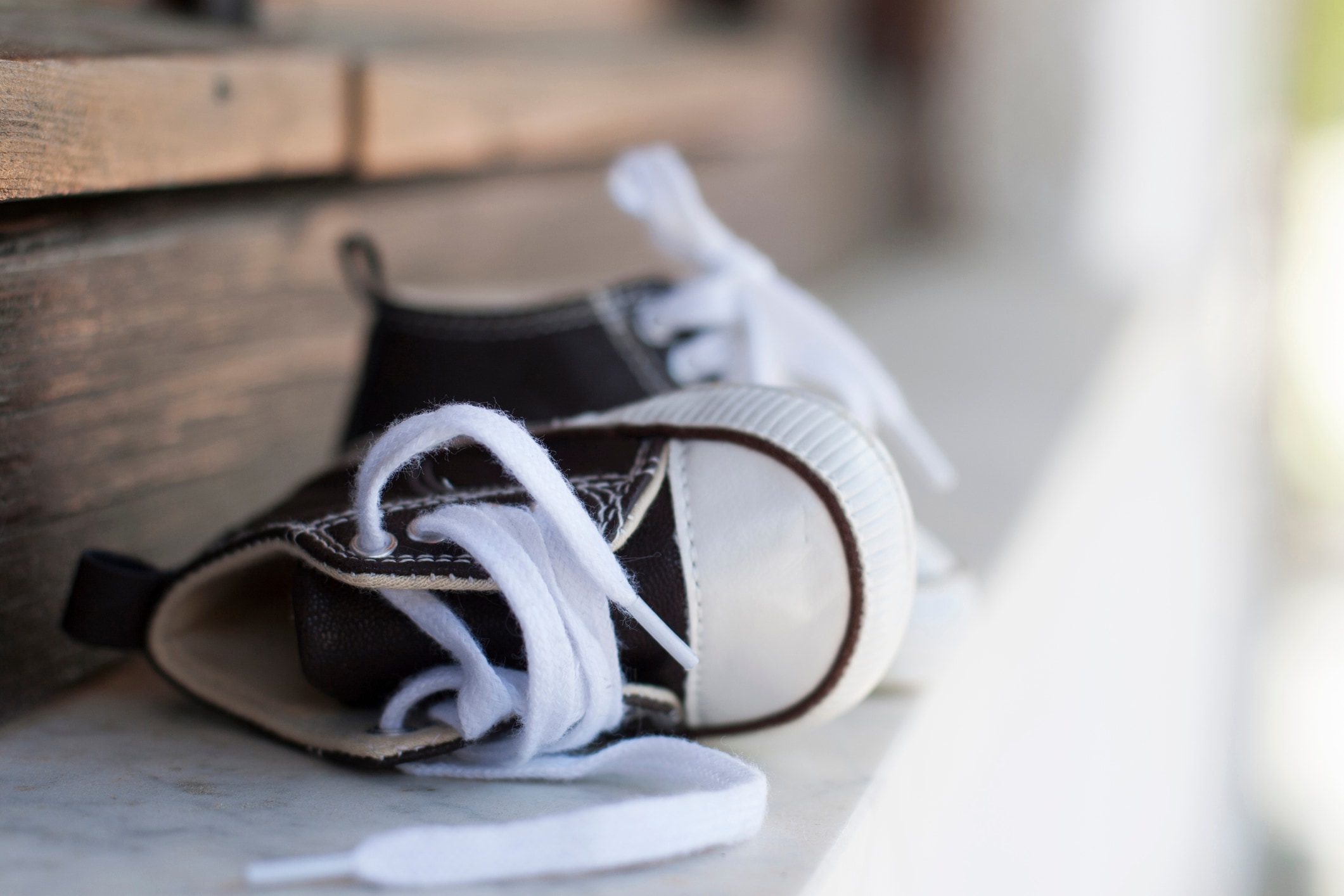When Robyn Parets’ two boys were young, she was torn in numerous directions, running all over Boston to take them to extracurricular activities. Like many parents, she thought her kids needed to be involved in as many activities as possible. But one day at her 7-year-old son Noah’s soccer game, she noticed he was more interested in pulling grass than actually kicking the ball.
“That was a lightbulb moment for me; my kid didn’t love it and he wasn’t good at it,” she says. “He isn’t a traditional sports type, so why am I even knocking myself to get to those games?”
Since her kids were little, Parets has owned Pretzel Kids, a nationwide kids yoga company that trains adults to teach yoga to kids, so she knew the importance of mindfulness and stress management. Following that aha moment, she focused on guiding her kids to just one activity each that they both were good at and liked — not just what all the other kids were doing.
In recent decades, there’s been increasing pressure on parents to involve their children in extracurriculars. Part of it is the competitive nature of getting into schools and college these days. Another factor is the need for after-school care with today’s working families. There are certainly mental, physical and developmental benefits to being involved in after-school activities like sports or the arts, but overscheduling kids can also do more harm than good.
Keeping your kids so busy outside of school that they lack free time for play or rest can lead to stress, anxiety and depression, says Harpreet Kaur, a licensed clinical psychologist for kids and teens at CHOC Children’s in Orange County, California.
“I think parents feel this pressure to prepare their kids for academic success and make them competitive college applicants and make them successful for a job, but they often miss out on that unstructured playtime that provides some of the skills that kids need to be successful anyway,” she says.
The benefits of extracurriculars
Don’t get us wrong — there are plenty of compelling reasons to have kids involved in extracurricular activities. Here are a few:
Encourages positive habits
Kids do best when they have structure and routine, she says, and those involved in extracurriculars perform better academically and are more likely to finish high school.
“These children engage more with their parents and are more active in their community,” Kaur says. “They’re also less likely to engage in drug use or other criminal activities.”
Helps develop skills and interests
Jennifer Fink, a nurse-turned-freelance writer in Mayville, Wisconsin, is the mother of four boys. She founded the site Building Boys to help parents and teachers better support and advocate for boys, and she says an extracurricular activity “gives children a chance to develop their skills, learn more about their interests and connect with others who may share the same passions and interests that they do.”
Fosters time-management skills
Fink has found that getting involved in extracurriculars can also help teach the kids time management.
“Sometimes a kid wants to do a lot of different things, and it may look like too much to us,” she says. “I think there’s some value in letting them try it and see how it goes. If all of those things are really important to the kid, they may find a way to make it work and learn very important time management skills in the process — things like how to get your homework done even when you’re playing on a sports team and taking a dance class.”
The downside of overscheduling
Unfortunately, overscheduling kids with too many extracurricular activities can take a toll on both the children and their parents, and it’s becoming increasingly common — something that Kaur has observed first-hand in her practice. Here are some of the pitfalls:
Interrupts valuable unstructured playtime
Kaur says there’s simply not enough information out there about how valuable play is.
“Unstructured playtime promotes social skill development, and kids develop problem-solving skills,” she says. “It allows them to be creative thinkers and develop assertiveness, and they learn how to cope with negative emotions. If you think about children when they get into a conflict on the playground, they have to manage some of these things without an adult present.”
Kaur says unstructured playtime has become so deprioritized that one American Academy of Pediatrics (AAP) report encouraged pediatricians to prescribe play to help make it more common for children again.
Triggers stress, anxiety and depression
When kids are too overscheduled and stressed, they’re more prone to anxiety, irritability, tiredness and destructibility, Kaur says. She adds that rates of anxiety and depression are already somewhat high in the general adolescent population, and “overscheduling kids just makes those rates increase.”
Increases pressure on parents
In addition to stress the kids feel from being overscheduled, Fink says it’s also hard on the parents, who often have to be in more places than physically possible at once.
“I think parents need to be cognizant of their own tolerance and capability and energy, as well, because sometimes I think that’s where the negatives first show up,” Fink says. “The kids might still be doing OK, but if you’re driving yourself crazy trying to get everybody to everything, it’s not necessarily worth it.”
7 ways to find balance in busy family lives
If your family feels overbooked and overstressed, here’s the good news: There’s a lot you can do to regain a sense of balance.
1. Create a visual schedule
Kaur advises parents to create some sort of visual reminder of everything that’s going on, whether it’s a calendar or list of activities, and to color code it by family member.
“If one person has too many things going on in their schedule, it’s easy to identify, and it helps families be more aware when they’re creating schedules for their children,” she says.
2. Schedule downtime
Another way to help busy kids, Kaur says, is to schedule at least an hour a week for family time to relax and have quality interactions together. This could be anything from cooking or playing a game to watching a movie as a family, she says.
3. Make room for unstructured play
Kaur also urges parents to give kids of all ages unstructured playtime.
“It’s so helpful for a child’s development and allowing them to pick an activity they enjoy and blocking out an afternoon or weekend time for the child to pursue their own interest,” she says.
4. Practice moderation
While it’s tempting to have your child involved in a million activities in order to look like a stellar college applicant, Kaur says, pay attention to what your kids value and where their interests are, and consider picking just one or two activities that are meaningful. It’s wise to focus on quality over quantity and schedule in moderation, Kaur says.
5. Try mindfulness
In her business, Parets has also noticed a stark increase in stressed and overscheduled kids, and she sees yoga and mindfulness as a potent antidote. She started her own kids on yoga from a young age and saw how much it helped them. In families with frazzled kids, she recommends dropping them to just one extracurricular and then bringing them to yoga.
“Here, they’ll find a place that’s noncompetitive, where they can just be themselves, feel good in their own skin, gain confidence and all the other benefits that go along with it,” she says.
6. Celebrate kids’ differences and talents
Parets has also noticed that many parents fear their kids being “different” from other kids if they aren’t involved in certain activities, and they worry that their kids won’t get into college if they aren’t involved in everything under the sun. But in her experience, tuning into your child’s true talent and nurturing it, even if it’s not the most popular extracurricular, makes them happier and healthier — and there are colleges that are happy to accept someone who shines at one thing rather than is simply involved in 10 things, she says.
7. Find the right balance for your family
While Fink points out that there’s no single definition of “overscheduled,” and it varies depending on each kid and family, the rule of thumb that’s worked best for her family is also just one extracurricular activity per season per child.
Parets says, “… when I saw that spark in their eyes, I knew. They had their one thing, and I wasn’t running myself ragged taking them to four activities a week. You have to find some balance; if that activity you’re taking them to is meaningful to them, then it works better for the whole family. They’re happy, you’re happy.”





